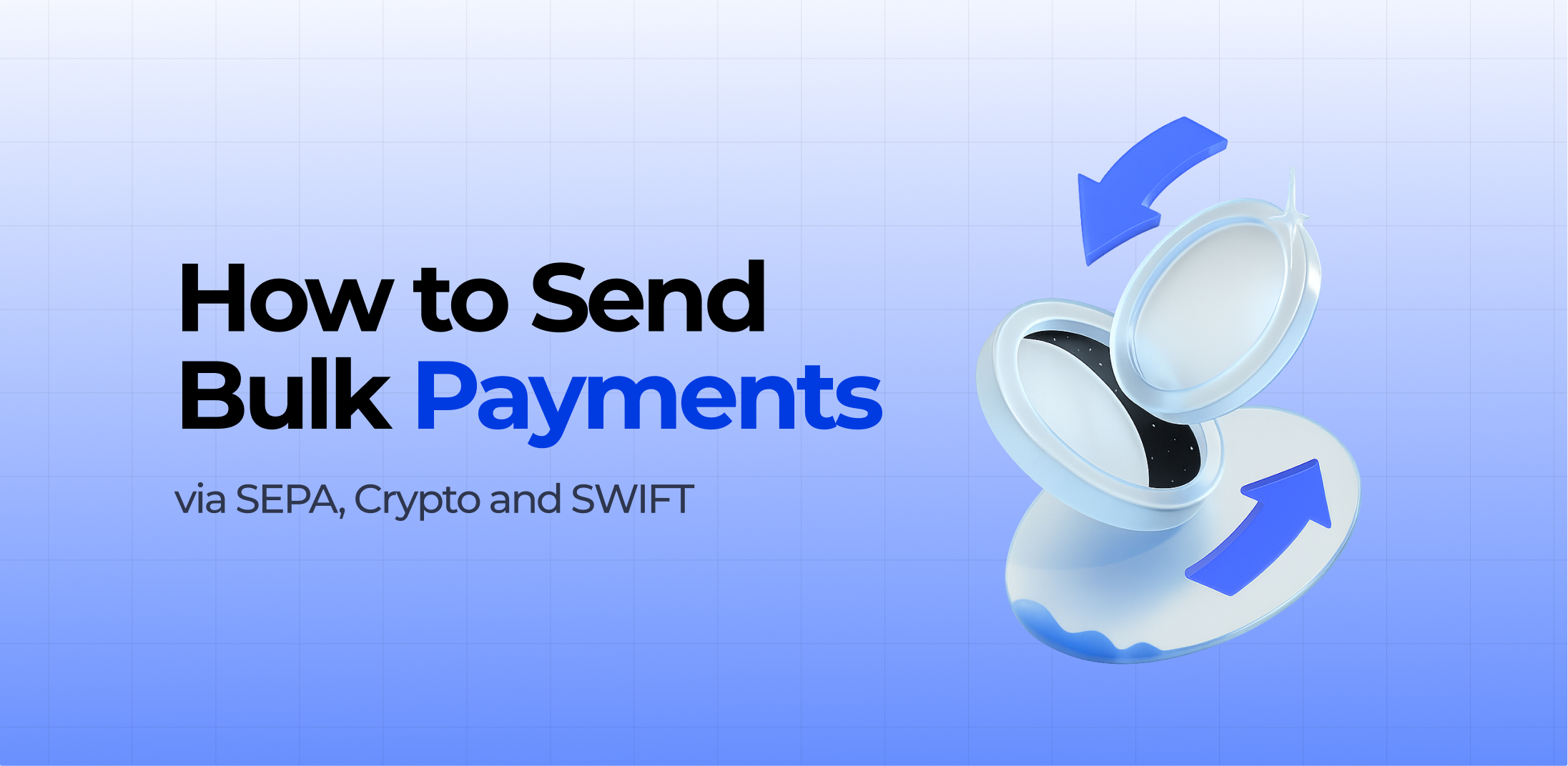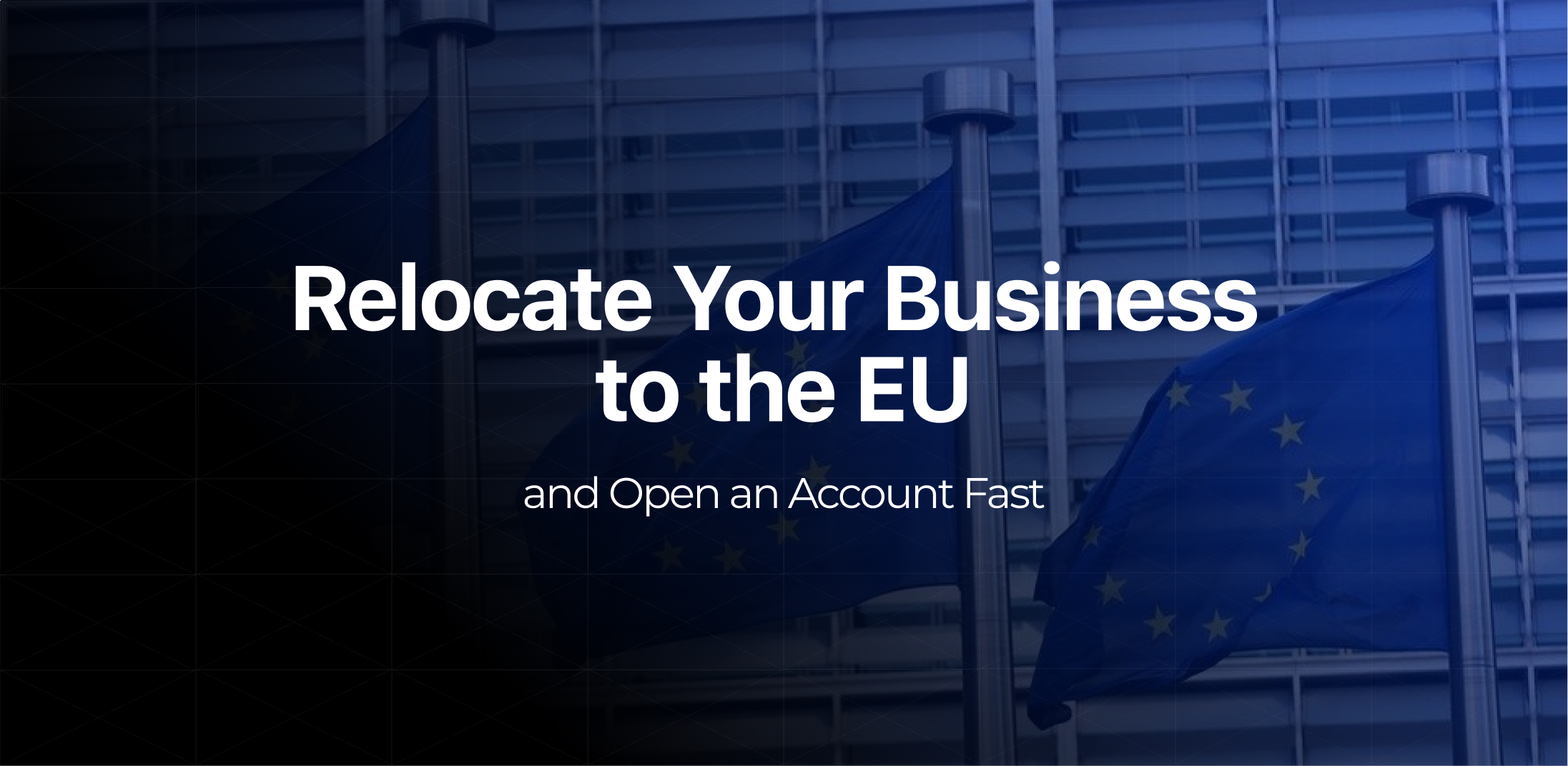Starting a fintech company is an exciting opportunity, but it comes with complex regulatory hurdles. Traditionally, businesses in the financial sector need to obtain licenses such as an Electronic Money Institution (EMI) or Payment Institution (PI) license to operate legally. These authorizations are designed to guarantee compliance with strict regulatory standards, safeguard consumers, and meet anti-money laundering obligations.
Yet, securing them can be expensive, lengthy, and resource-heavy – often stretching over many months or even years. As a result, more founders are seeking ways to start fintech without license ownership by adopting creative collaboration models. A leading option is “EMI-as-a-Service”, where an already licensed provider grants access to its regulatory framework, infrastructure, and technology.
This arrangement lets fintech startups focus on refining their product, growing their user base, and building their brand, while the partner assumes responsibility for compliance and licensing. The advantages are clear – lower costs, rapid market entry, and expert regulatory guidance. With the right strategic partner, a fintech can launch in weeks rather than years, operating fully within the law from day one.
Business Licensing Challenges for New Fintechs
Breaking into the fintech sector offers tremendous opportunities, but the path is often blocked by complex regulatory requirements. Financial services remain one of the most heavily regulated industries globally, with stringent frameworks aimed at safeguarding consumers, maintaining market stability, and combating financial crime.
For emerging fintech businesses, securing licenses such as an Electronic Money Institution (EMI) or Payment Institution (PI) authorization can prove both time-consuming and costly. Applicants must demonstrate strong capital reserves, implement comprehensive compliance measures, and establish detailed operational processes before regulators will even review their case.
In addition to the high costs and administrative demands, approval timelines can stretch over many months, or even years, depending on the jurisdiction and the scope of services offered. For innovators eager to launch quickly, these delays can stall momentum and deter potential investors. As a result, a growing number of startups are turning to alternative models that enable them to operate legally without holding a direct license.
High Entry Fintech Business Barriers
Starting a licensed fintech means facing a maze of authorization types, from Electronic Money Institution (EMI) and Payment Institution (PI) permits to full banking licenses – each carrying its own rigorous compliance standards. Regulators typically require substantial capital reserves, often amounting to millions, along with protracted approval periods that may exceed a year. On top of this, strict staffing criteria must be met, including appointing seasoned compliance officers, Money Laundering Reporting Officers (MLROs), and other specialists to manage governance, risk controls, and anti-financial crime frameworks.
Long Time to Fintech Market
Obtaining an Electronic Money Institution (EMI) license in the EU usually requires 12–24 months, and in some instances, even more time. These extended timelines can seriously hinder startups, pushing back product launches and limiting their agility in meeting market needs. Prolonged approval processes not only erode competitive advantage but can also make it harder to attract investors, who often favor businesses with the ability to enter the market and generate returns more rapidly.
Compliance and Ongoing Costs
Holding your own fintech license necessitates a comprehensive compliance structure, incorporating sophisticated AML/KYC processes, routine independent audits, and meticulous regulatory reporting. Fulfilling these requirements calls for constant investment in cutting-edge technology and skilled professionals.
An in-house compliance team, staffed with experts in anti-money laundering, risk oversight, and statutory reporting, further increases operational overheads. For many emerging fintechs, such recurring expenses can rapidly absorb a substantial share of income, making sustained profitability and business growth considerably harder to attain.
Geographic Limitations
Possessing a fintech license in a single jurisdiction doesn’t automatically permit operations in other regions. Cross-border expansion often demands securing extra licenses or leveraging passporting schemes, where applicable, to offer services legally.
Without such measures, fintechs encounter significant obstacles to market entry, restricting both their audience and revenue streams. Pursuing multiple licenses involves substantial costs and lengthy procedures, turning international scaling into a challenging, resource-heavy endeavor—especially for startups seeking rapid growth in competitive markets.
What Is EMI-as-a-Service?

In the conventional fintech landscape, offering payment or e-money services typically requires securing an Electronic Money Institution (EMI) license – a process that can be both costly and lengthy. An increasingly popular alternative is EMI as a service, where fintech startups operate under the regulatory framework of an already licensed EMI provider.
Rather than navigating the licensing process themselves, companies partner with these providers to leverage their infrastructure, technology, and compliance expertise. This setup allows new players to enter the market much faster while fully adhering to legal and regulatory obligations.
The licensed partner manages essential functions such as AML/KYC procedures, transaction oversight, and regulatory reporting, enabling the fintech company to concentrate on innovation, user experience, and business growth. For many emerging companies, EMI-as-a-Service offers a streamlined, lower-risk path to launch, turning a traditionally slow and expensive licensing process into a flexible, scalable go-to-market solution.
Definition and Core Concept
An Electronic Money Institution (EMI) license permits organizations to issue electronic money and offer payment services under rigorous regulatory supervision. The “as-a-service” approach allows fintech companies to function by collaborating with a licensed EMI, leveraging its regulatory authorization rather than acquiring their own license.
In this arrangement, the licensed EMI assumes full accountability for compliance tasks such as anti-money laundering (AML) protocols, protecting client funds, and meeting all regulatory reporting requirements. This collaboration lets fintechs concentrate on product development and customer growth, while operating safely within a fully compliant environment.
How It Works in Practice
In real-world applications, white label banking and EMI-as-a-Service models depend on smooth technical integration, typically via APIs, allowing fintechs to link their platforms directly to the licensed provider’s systems. This approach enables fintech companies to deliver fully branded services without dealing with the complexities of backend operations.
The licensed partner manages compliance, transaction processing, and fund protection, while the fintech concentrates on enhancing customer experience, branding, and product development. This clear separation of duties lets fintechs establish their unique identity and grow their customer base while trusting their partner to handle regulatory and operational responsibilities effectively.
Industries and Use Cases
EMI-as-a-Service caters to various fintech verticals such as neobanks, remittance companies, and payment gateway providers. It also facilitates swift, compliant launches for card issuance programs, currency exchange services, and digital wallets.
Collaborating with licensed EMI partners allows these firms to prioritize product innovation and customer experience instead of navigating regulatory hurdles. Several neobanks have notably expanded quickly across regions without securing their own licenses, showcasing how EMI-as-a-Service empowers rapid growth while ensuring full regulatory compliance and smooth operations.
Key Functions You Can Outsource
Creating a fintech from scratch requires handling numerous complex responsibilities, particularly in regulatory compliance and operational systems. Many startups discover that delegating key tasks to specialized partners can drastically cut down on time, expenses, and potential risks. By partnering with experienced providers, fintechs can offload vital functions and concentrate on product innovation, customer satisfaction, and business expansion.
The idea of Key Functions You Can Outsource lies at the heart of this strategy – encompassing areas like compliance oversight, payment operations, customer onboarding, and regulatory reporting. Outsourcing these essential processes not only eases the challenge of meeting regulatory demands but also speeds up the journey to market. In the following sections, we’ll dive into the main functions that fintechs typically outsource and how this supports launching a compliant, scalable business without the need to hold their own license.
Compliance and Regulatory Management
Within the EMI-as-a-Service framework, the licensed provider assumes complete responsibility for compliance and regulatory oversight. This involves performing comprehensive AML (Anti-Money Laundering) and KYC (Know Your Customer) procedures to confirm customer identities and mitigate fraud risks.
The provider also conducts ongoing transaction monitoring to identify suspicious or abnormal behavior, enabling prompt risk detection. When necessary, they manage the reporting of such activities to appropriate regulatory bodies. By delegating these vital compliance duties, fintech companies can prioritize growth and innovation, trusting their partner’s expertise to ensure full regulatory compliance.
Payment Processing Infrastructure
For a regulated fintech launch, having a reliable payment processing infrastructure is essential. Through EMI-as-a-Service, fintechs gain access to systems that support both domestic and international money transfers, enabling seamless cross-border payments. Additionally, licensed providers offer card issuing and acquiring services.
It allows fintechs to offer branded debit cards and accept payments from customers worldwide. This comprehensive infrastructure ensures smooth, secure, and compliant transaction handling without the fintech needing to build or manage complex payment networks themselves, accelerating their ability to serve customers effectively from day one.
Multi-Currency and FX Services
Collaborating with a licensed EMI provider allows fintechs to provide multi-currency accounts and foreign exchange (FX) services without the need to develop their own infrastructure. This partnership enables customers to easily manage, transfer, and receive money in various currencies.
Leveraging the provider’s mature systems ensures access to competitive FX rates, offering affordable currency conversions. This arrangement empowers fintechs to deliver global payment capabilities and serve international clients swiftly and effectively, while sidestepping the significant expenses and complexities involved in creating and operating proprietary FX and multi-currency systems.
Customer Account Management
Through the partner’s EMI license, fintech companies can provide comprehensive account management solutions, such as issuing IBANs and simplifying the account opening experience. This enables customers to maintain accounts with distinct IBANs for smooth domestic and cross-border payments. The connection is usually powered by APIs, giving fintechs versatile and automated capabilities to efficiently handle customer accounts.
These APIs facilitate real-time data updates, transaction monitoring, and effortless onboarding, improving overall user satisfaction. Utilizing the partner’s licensed platform, fintechs can offer advanced account services without facing the regulatory challenges and operational complexities of holding their own license.
Money Treasury and Safeguarding
A licensed EMI provider protects customer funds by keeping them in segregated accounts, distinct from the company’s operational finances. This separation ensures that customer money remains secure even if the provider faces insolvency or financial challenges, offering crucial regulatory compliance and peace of mind.
Fintechs also gain access to liquidity management solutions through the licensed partner, allowing for effective cash flow monitoring and strategic fund allocation. These capabilities support seamless operations and regulatory adherence without requiring fintechs to develop their own treasury infrastructure, guaranteeing security and financial stability from the outset.
Regulatory and Operational Benefits

Partnering with a licensed EMI provider offers fintechs significant regulatory and operational advantages. This approach reduces compliance burdens, ensures adherence to legal standards, and streamlines day-to-day operations. It allows fintechs to focus on growth while benefiting from established expertise and infrastructure.
Faster Market Entry
A major benefit of collaborating with a licensed EMI provider is the ability to accelerate the journey from idea to launch. Rather than enduring years of complicated licensing hurdles, fintechs can become operational in a matter of weeks or months by utilizing established regulatory structures.
This quicker timeline allows startups to seize market opportunities promptly, address customer demands swiftly, and strengthen their competitive position. Rapid market entry also appeals to investors by showcasing flexibility and shortening the path to revenue generation. Ultimately, this speed enables fintechs to innovate and grow effectively without delays caused by protracted licensing processes.
Lower Capital Requirements
A key benefit of working with PaySaxas is the removal of the large initial capital requirements usually needed to secure and uphold a fintech license. Conventional licensing processes require significant financial reserves to comply with regulatory demands, posing a major challenge for startups and emerging companies.
Utilizing PaySaxas’ established license allows fintechs to bypass these substantial upfront capital obligations, freeing resources to focus on product innovation, marketing efforts, and expansion. This strategy reduces financial hurdles, making it simpler and more attainable for new fintechs to launch and grow their offerings successfully.
Compliance Risk Reduction
Partnering with PaySaxas helps fintechs significantly reduce compliance risks by sharing or fully managing regulatory responsibilities. As a licensed EMI provider, PaySaxas assumes oversight of critical compliance areas, including AML, KYC, and regulatory reporting. This arrangement ensures that all legal and regulatory obligations are met consistently and accurately, minimizing the risk of penalties or breaches.
For fintechs, this means less internal burden and greater confidence in adhering to complex regulations. Whether through shared responsibility or full management, PaySaxas’ expertise provides a strong compliance foundation, allowing fintechs to focus on growth and innovation without regulatory worries.
Scalability
Collaborating with PaySaxas allows fintechs to grow seamlessly by utilizing the partner’s existing license coverage in various regions. This extensive regulatory footprint enables companies to enter new markets without the burden of securing separate licenses, which often involve significant time and expense.
By leveraging PaySaxas’ platform, fintechs can swiftly adjust to diverse market demands and customer expectations while staying fully compliant. This adaptability fosters accelerated growth and global expansion, empowering fintechs to capitalize on international opportunities and strengthen their market position without facing typical regulatory challenges.
How to Get Started with PaySaxas

Launching your fintech journey with PaySaxas is straightforward and efficient. Our team guides you through every step, from initial consultation to full integration, ensuring a smooth onboarding process. First, we assess your business needs to tailor our EMI-as-a-Service solutions to fit your goals and target markets.
Next, we assist with technical integration, leveraging APIs that connect your platform with our licensed infrastructure seamlessly. Throughout the partnership, PaySaxas provides continuous compliance support, payment processing, and treasury management, so you can focus on growing your business.
With our expertise and flexible approach, getting started with PaySaxas means accelerating your time-to-market while minimizing risk. Ready to launch your fintech faster and smarter? Let’s begin the journey together.
Understanding PaySaxas’ EMI-as-a-Service Model
PaySaxas functions within a fully authorized EMI framework, offering broad regulatory coverage across major markets. Our platform delivers services such as IBAN issuance, multi-currency account management, and smooth crypto-to-fiat conversion capabilities, allowing fintechs to provide a wide range of financial products without the burden of licensing challenges.
By tapping into our infrastructure, partners benefit from secure payment processing, robust compliance oversight, and efficient treasury management. This all-encompassing model enables fintech companies to concentrate on innovation and expansion while depending on PaySaxas for expert regulatory and operational backing.
Integration Process
Starting with PaySaxas involves an initial consultation to understand your business objectives and requirements. After this, we supply detailed API documentation along with access to a sandbox environment for extensive testing and development. This phase guarantees seamless technical integration and system compatibility.
Following successful tests, we guide you through regulatory onboarding and compliance verification. Once completed, your fintech launches live, backed by our licensed infrastructure and continuous operational support, ensuring a smooth and efficient journey from idea to market.
Compliance Onboarding
PaySaxas’ compliance onboarding includes a detailed due diligence process to confirm that fintech partners adhere to regulatory requirements and maintain strong operational standards. This involves reviewing business models, ownership details, and assessing potential risks.
Depending on the setup, PaySaxas can manage or assist with KYC/KYB procedures through its infrastructure and compliance team. This thorough process guarantees full regulatory compliance from the very start.
Pricing and Partnership Models
PaySaxas provides adaptable pricing options designed to suit the specific requirements of your fintech, such as revenue sharing, fixed monthly fees, or pay-per-transaction models. Revenue sharing ties costs directly to your company’s growth, whereas fixed fees offer consistent, predictable billing.
Transaction-based pricing applies charges based on each processed payment, making it well-suited for growing startups. These flexible models enable fintechs to select the best fit for their financial goals and expansion strategies, promoting both cost-effectiveness and scalability over time.
Conclusion
Launching a fintech company without holding your own license is becoming a smart and practical choice for entrepreneurs aiming to enter the financial sector swiftly and effectively. Traditional licensing routes are often expensive, complicated, and slow—taking years to finalize and demanding substantial capital and compliance efforts. By adopting an EMI-as-a-Service model, fintechs can sidestep these challenges by leveraging the regulatory framework, technology, and expertise of an established licensed provider.
This collaboration cuts down time-to-market, reduces operational expenses, and lowers regulatory risks, enabling startups to concentrate on innovation, user experience, and expansion. With comprehensive compliance management, payment processing, multi-currency capabilities, and treasury functions all managed by the licensed partner, fintechs can significantly shorten launch time — from years to just a few weeks, depending on business model and risk profile.
This accelerates growth potential and strengthens their competitive edge in a rapidly evolving industry. If you’re ready to turn your fintech idea into reality without the complexities of licensing, consider partnering with PaySaxas. Our adaptable EMI-as-a-Service offerings deliver the regulatory backing and infrastructure essential for success in today’s fast-paced market.







